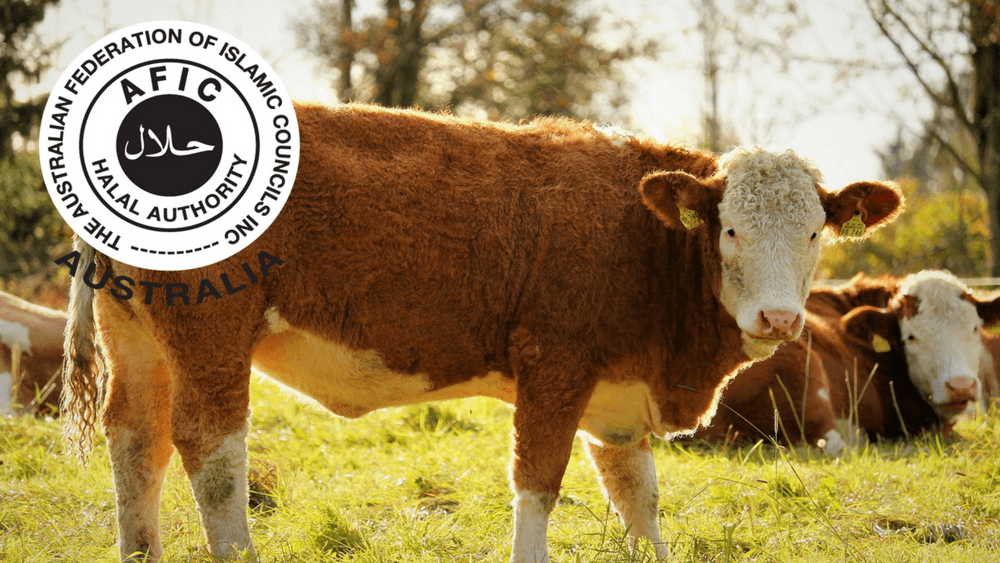Halal defamation case settled out of Supreme Court
Kirralie Smith and Q Society controversy raises issues of Islamic food certifying
The director of Halal Certification Authority of Australia has settled a Supreme Court case of defamation against the Islam-critical Q Society.
Due in court next month, Mohamed El-Mouelhy was suing six parties for damages – Kirralie Smith, a Christian housewife and founder of the Halal Choices website, four members of the Islam-critical Q Society, and the owner of YouTube. The trigger for this court case was a series of YouTube clips in 2014, presented by Smith for Q Society, which named El-Mouelhy.
The settlement document was partly published by Sydney Morning Herald and outlined how “Q Society, its board members and Kirralie Smith did not intend to suggest that the profits of Mr El-Mouelhy’s halal certification business were in any way improperly used. The Q Society, its board members and Kirralie Smith apologise to Mr El-Mouelhy for the hurt caused to him as a result of the publications, the subject of the proceedings.”
In the 1970’s, some Islamic groups in Australia began issuing certificates to declare certain products as “halal.”
“In light of the above apology Mr El-Mouelhy withdraws the comments he made about the Q Society, its board members and Kirralie Smith in response to their publications.”
The Koran’s teaching on halal food is specific. Muslims are told they can eat food which is “lawful” (halal) and good (Q.16:114; 5:91; 2:168, 172), and most foods fit into this category (Q.5:2). Pronouncing Allah’s name over food before eating it is required (Q.5:5; 6:118, 121), Forbidden (haram) is the flesh of swine, or an animal that has died, or blood, or meat offered to a deity other than Allah (Q.2:173; 16:115). Also, Muslims are commanded not to make lawful food forbidden (Q.5:90). However, when it is a necessity, even forbidden food becomes lawful (Q.2:173; 5;4; 6:119, 145; 16:115).
Over the centuries, Muslim legislators have added to these injunctions, creating an elaborate system of food laws. In the 1970’s, some Islamic groups in Australia began issuing certificates to declare certain products as “halal.”
Some Christians see no problem with halal certification.
Today, halal certification in Australia involves one of 21 Islamic bodies accepting a payment to certify that a certain product fulfils Islamic ritual requirements. This certification process began with meat, to ensure that it would be accepted in Muslim markets of Asia and the Middle East. It rapidly spread to other products, including soft drinks, water and even cat food. Today Aussie icons such as Vegemite, Bega cheese, Kelloggs cornflakes and Anzac biscuits bear the halal label.
Some Christians see no problem with halal certification. They compare it with Jewish kosher food or the (now-discontinued) Heart Foundation tick. They note that “the earth is the Lord’s and everything in it” (Ps 24:1), so all food falls under the rubric that God “richly provides us with everything for our enjoyment” (1 Tim 6:17).
But for other Christians, the fact that halal food has had the name of Allah pronounced over it is grounds enough for rejection. They recall the teaching of the first Jerusalem council, where the believers were told to abstain from food offered to idols (Acts 15:29; 21:25), and Jesus’s rebuke to the churches at Pergamum and Thyatira (Rev 2:14,20).
In this view, the Allah of the Koran is deemed an idol, and inherently distinct from the God of the Bible. Christians differ about this – Yale University’s Miroslav Volf emphasises the similarities, whereas Melbourne academic Dr Mark Durie notes the differences. Even food offered to idols can be eaten, according to the Apostle Paul, as long as no questions are asked about it (1 Cor 10:23-33) and it does not make another Christian stumble (1 Cor 8:1-13; Rom 14:1-23). Rev. Gordon Moyes concludes that “you need not worry about kosher labels, halal labels, vegetarian labels or anything else. Christians are free in Christ to make their choices regardless of who the butcher was, or whether a rabbi, or an imam, or a Seventh Day Adventist member certified it clean. Only remember, respect other people’s customs and beliefs.”
Other Christians claim the fees paid to certifying organisations amount to a “Muslim tax” on all consumers of halal goods.
Moreover, it is asserted, the prohibition against food offered to idols refers to participation in idol worship and the attendant feasts (1 Cor 10:6-22), not to eating meat which may have been offered in a pagan sacrifice and afterwards sold in the public market. So, by some, this “food offered to idols” objection is dismissed as invalid.
Other Christians claim the fees paid to certifying organisations amount to a “Muslim tax” on all consumers of halal goods. Although only two per cent of Australians identify themselves as Muslim, every person who eats Vegemite contributes to the Islamic coffers. And these coffers are substantial. Commentators suggest the international halal market could be worth more than one trillion dollars. Large organisations such as Cadburys, Nestle and Kraft have their foods certified for commercial reasons, although they maintain the cost is never passed on to the customer.
Australian philanthropist Dick Smith refuses to pay for halal certification for his food products. He states that “while we have a choice … we would prefer to avoid unnecessarily increasing the cost of our products in order to pay for halal accreditation, when this money would be better spent continuing to support important charitable causes where assistance is greatly needed … We have never been asked to put a Christian symbol … on our food requiring that we send money to a Christian organisation for the right to do so.”
Added to this is the secrecy surrounding halal certification. Large companies are loathe to admit how much they pay for this service, and the certifying organisations can use the non-disclosure laws for non-profit organisations to avoid revealing their real incomes. Moreover, not all halal-certified goods are labelled, so consumers cannot make informed choices about what they are buying. A 2015 Australian senate inquiry into halal certification requested all halal food should be clearly labelled.
…Any opposition to or questioning of their view is branded as anti-Muslim paranoia.
This perceived veil of secrecy has added to the suspicion, held by some, that the halal fees may be funnelled into terrorist organisations. Although the senate inquiry was told by the anti-money-laundering and counter-terrorism financing agency AUSTRAC (Australian Transaction Reports and Analysis Centre) that they did not find any basis for claims that halal funds terrorism overseas, its representatives also admitted that they had not actually investigated whether a direct link existed.
Detractors claim that halal certification is an attempt to foist Islamic food laws, and more, on all Australians, as a form of “creeping sharia.” In 2011, the Australian Federation of Islamic Councils (AFIC) lobbied the federal government to permit elements of sharia, a move they called “legal pluralism.” They noted that halal food certification and sharia-compliant financing were already legal in Australia, and it should be taken to the next level.
As halal regulations are applied to more areas, including the grain fed to stock and the vehicles used to transport food, every part of the food chain potentially becomes involved. Mustafa Ceric, the grand mufti of Bosnia and a leader of the Muslim Brotherhood, urged a conference in Islamabad in 2010 “to conquer the world through the halal movement.” This is dismissed as rhetorical overstatement by certification advocates, and any opposition to or questioning of their view is branded as anti-Muslim paranoia.
Jordanian Princess Alia bint al-Hussein stated that killing without stunning is not necessary under Islamic principles.
Others oppose the halal industry on cruelty grounds. Halal killing forbids electrical pre-stunning before slaughter, a process required for RSPCA approval as “best practice” in meatworks to minimise animal suffering. According to a government-commissioned report, un-stunned cows may remain alive for up to two minutes after their throats are cut. Opponents of halal certification claim that it contributes to higher levels of animal pain and distress.
In 2009, Jordanian Princess Alia bint al-Hussein, a descendant of the prophet Muhammad, wrote to then Prime Minister Kevin Rudd asking Australia to stop the halal trade because of its cruelty to animals. She stated that killing without stunning is not necessary under Islamic principles.
To make the matter even more confusing, some Muslim scholars reject the idea of halal certification. Dr Taj Hargey, Director of the Muslim Educational Centre of Oxford (UK) calls it “covert religious extremism and creeping Islamic fundamentalism making its way into Britain by the back door.” Conservative Saudi Salafist scholar Sheikh Ibn Uthaymeen opposes it, based on legal rulings, and Sheikh Habib Bewley of South Africa states that it “clearly runs counter to a number of essential governing principles of the Deen [Islamic religion].”
Halal certification raises a complex series of issues – religious, legal, social, economic and political – and it will continue to exercise the minds of concerned Christians. The upcoming court case in Sydney will be only one chapter in an ongoing saga.
Bernie Power is a lecturer at the Centre for the Study of Islam and other Faiths, at Melbourne School of Theology. He is the Author of Understanding Jesus and Muhammad, Acorn Press, 2016




